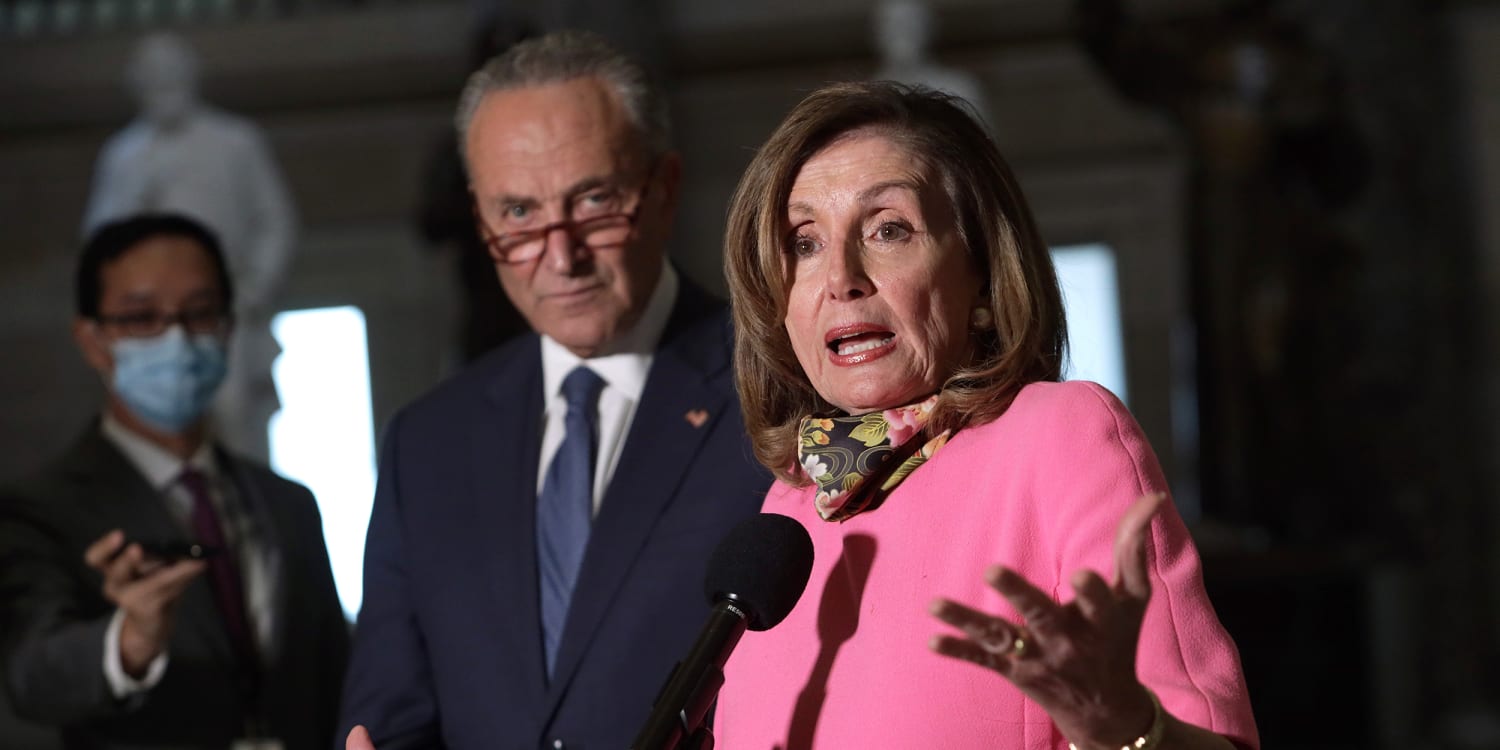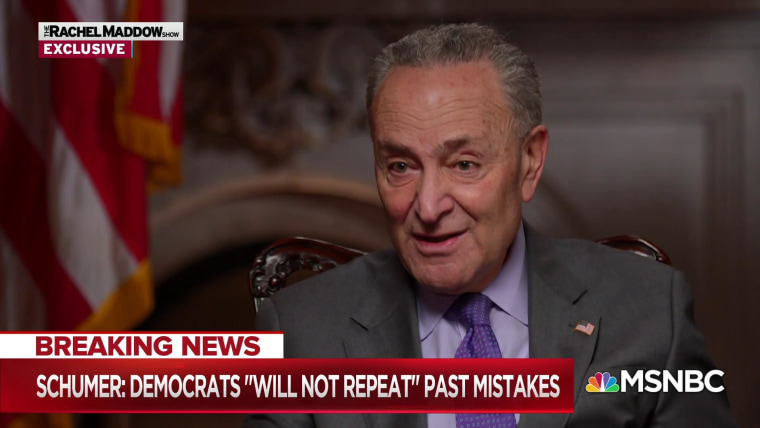The Jan. 6 invasion of the U.S. Capitol by an insurrectionist mob assembled and incited by then-President Donald Trump has set the stage to enact historic reforms of our democracy.
With President Joe Biden sitting in the White House, and a Democratic majority in Congress, Senate Majority Leader Chuck Schumer, D-N.Y., recently declared that his first big legislative priorities would include the overarching reform bill S.B. 1, designed to repair America’s broken political structure, fix our corrupting campaign finance system and revitalize U.S. democracy. It mirrors Speaker Nancy Pelosi’s bill in the House, the For the People Act, known as H.R. 1, which passed the House in 2019 and is expected to be voted on again soon. She considers it “central to the integrity of our government.”
The grave problems facing our political system make passage of this bill crucial in both houses of Congress.
The grave problems facing our political system make passage of this bill crucial in both houses of Congress, alongside Biden’s top priority: solving the Covid-19 crisis.
I began working on democracy issues roughly 50 years ago, fighting for the campaign finance and government reforms enacted in the wake of the 1970s Watergate scandal.
We must seize the moment that now exists to repair our democracy. If we do not, history shows us this opportunity will not come around again anytime soon.
Here are 10 reasons why Congress must pass this law now:
It empowers citizens. As Supreme Court Justice Louis Brandeis reportedly pronounced, “The most important political office is that of private citizen.” The public has serious concerns that the system is rigged against ordinary Americans. That’s because it is. S.B. 1, along with H.R. 1, rebalances the citizen’s role in the political process. It addresses political corruption in Washington, voter suppression and discrimination, partisan gerrymandering of congressional districts, abuses of public office for personal financial gain and election security.
It protects the right to vote. Trump’s blatantly false claims of widespread voter fraud have left their mark. Tens of millions of Americans now believe his lies. Republican officials in some states are already moving to use Trump’s claims as cover to restrict and suppress voting — particularly by voters of color. So H.R. 1 and S.B. 1 incorporate the iconic late Rep. John Lewis’s comprehensive Voter Empowerment Act. This ensures that every eligible voter can vote, every vote is counted and the integrity of the electoral process is protected. Quick passage of both S.B. 1 and H.R. 1 are essential to putting critical voting reforms in place before the midterm congressional elections.
It empowers small donors instead of big money. Today, big money plays a pervasive role in U.S. elections. Influence-seeking billionaires and millionaires, super PACs, dark money nonprofits, contribution bundlers and lobbyists dominate campaigns. Candidates need an alternative. H.R. 1 and S.B. 1 contain a new, small-donor, public-matching financing system that, combined with the exponentially increasing ability to raise small contributions online, could help ensure federal candidates can run for office with noncorrupting funding. This would dramatically reduce big money’s influence, empower tens of millions of small donors, benefit women and people of color, free officeholders to represent their constituents rather than megadonors and allow elected officials to spend far more time serving the public and far less time asking for money.
It protects voting by mail and early voting. The record turnout for the 2020 presidential election was due in good part to increased opportunities to vote by mail or cast ballots early — both far safer during the coronavirus pandemic. Despite Trump’s false claims, there was little, if any, evidence of mail-in fraud. Nonetheless, voting restrictions already exist in some states and other state legislatures are devising new rules that suppress early and mail-in voting — particularly in urban communities of color. Both S.B.1 and H.R. 1 establish consistent rules so all citizens have the right to vote by mail or vote early.
It brings dark money into the light. The U.S. Supreme Court’s 2010 Citizens United v. FEC decision opened the floodgates to the hundreds of millions of dollars in unlimited secret contributions, or dark money, that have since sluiced through nonprofit groups into federal elections. This is among the most dangerous money in U.S. politics because there is no way to hold either the donor or the benefiting officeholder accountable for influence buying or selling. S.B. 1 and H.R. 1 close this gaping loophole by requiring full disclosure of these donors and how much they give.
The Federal Election Commission is a dysfunctional regulatory agency. As a result, there is virtually no enforcement of U.S. campaign finance laws.
It increases election security. A 2019 Senate Intelligence Committee report revealed that Russian hackers in 2016 targeted election systems in all 50 states. It reported “an unprecedented level of activity” seeking to identify flaws. S.B. 1 and H.R. 1 allot more than $1.5 billion to help states secure their voting systems — such as preventing cybersecurity breaches of computerized voter registration databases. It requires the Department of Homeland Security to provide real-time threat information to states. Washington must also issue cybersecurity guidelines for state election systems.
It enforces campaign finance laws. The Federal Election Commission is a dysfunctional regulatory agency. As a result, there is virtually no enforcement of U.S. campaign finance laws. Candidates know they can ignore the rules without consequences. Senate Republican Leader Mitch McConnell of Kentucky has played a critical role in deadlocking the six-member panel by installing GOP commissioners who usually oppose and misinterpret election laws. This leaves the FEC toothless. H.R. 1 and now S.B. 1 aim to strengthen the commission’s ability to enforce laws. The bills also establish a bipartisan panel to recommend to the president qualified nominees to serve on the commission.
It creates fair congressional districts. The political party that controls a state legislature usually has the power to draw distorted partisan congressional districts. This gerrymandering protects incumbents and the party in control — enabling members to choose their voters rather than allowing voters to choose their representatives. Congress has the right, however, to establish the rules governing congressional elections. The reform bills would require states to set up nonpartisan commissions to devise fair congressional districts — an approach already used successfully in some states. This must be enacted quickly so new lines can be drawn for the 2022 congressional races — and for the rest of the decade.
It addresses presidential conflicts of interest. Trump repeatedly abused the rules that prevent a president from using public office for personal financial gain. After 40 years of Republican and Democratic presidents voluntarily disclosing their tax returns, Trump refused. He also refused to divest ownership of his business enterprises, leading to numerous abuses of his office that directed money to his companies. Trump also repeatedly violated the U.S. Constitution’s Emoluments Clause, which prohibits an officeholder, including a president, from receiving financial benefits from foreign governments or state governments without approval by Congress. S.B. 1, with H.R. 1, requires a president and vice president to disclose their tax returns within 30 days of taking office. They must also divest any financial holdings that pose potential conflicts of interest.
It cuts down on foreign influence in U.S. elections. During the 2016 race, Russian agents offered the Trump campaign opposition research on Democratic nominee Hillary Clinton. The Russians also hid behind weak disclosure requirements, secretly paying for online ads intended to help Trump and hurt Clinton. U.S. legal loopholes allowed foreign countries to intervene in and influence our elections. H.R. 1 and S.B. 1 aim to prohibit foreign governments from buying campaign-related broadcast or internet ads, extend disclosure requirements to include all online campaign-related ads and restrict candidates and foreign governments from exchanging campaign information. Candidates must also report any foreign government’s offer of campaign assistance.
We now have a once-in-a-generation opportunity to repair our system of representative government and rebuild citizen confidence. All Americans need to know that their voices are heard and their interests represented — not just the voices and interests of the wealthy and powerful.
Source: | This article originally belongs to Nbcnews.com











